More fences, cattle grids to exclude boars from Bukit Panjang residential areas in wake of two attacks
About 50 boars trapped in Zhenghua Nature Park have been culled since 2019.
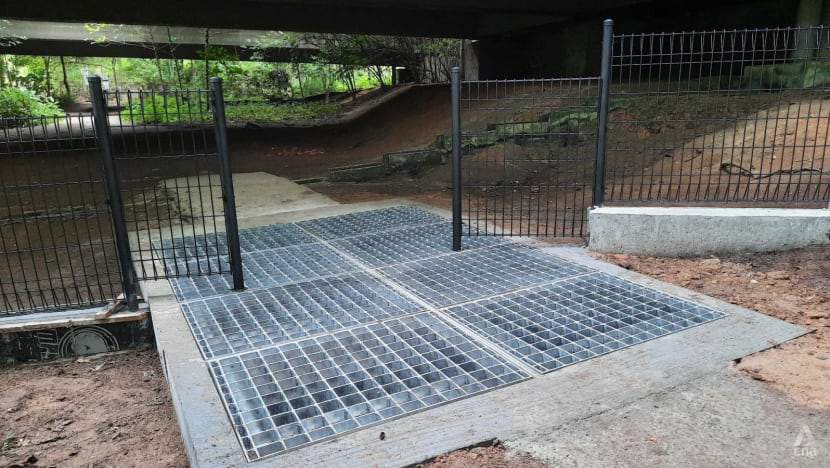
Cattle grids installed at the Bangkit underpass at Zhenghua Nature Park to prevent wild boars from crossing into residential areas. (Photo: CNA/Koh Wan Ting)
SINGAPORE: The authorities are stepping up measures to prevent wild boar attacks in Bukit Panjang after recent incidents where two residents were injured.
The National Parks Board (NParks) said it would be adding more fences and installing new cattle grids in Zhenghua Nature Park to prevent wild boars from entering residential areas. These are in addition to existing measures such as culling.
Instead of gates, cattle grids will be installed in the ground at gaps between fences.
Cattle grids are grates that allow unimpeded access to park users and cyclists. However, they are designed with gaps to catch the boars' hooves should they attempt to cross.
One such cattle grid, located at the Bangkit underpass and leading towards Chestnut Nature Park, was shown to the media during a visit to Zhenghua Nature Park on Friday (Jun 23). Its installation was completed that very morning.
Another cattle grid as well as fences spanning 150m in length will be installed along Chestnut Avenue, while fencing will be put up along a 400m stretch under Gali Batu Flyover.
The measures at Chestnut Avenue are expected to be completed by July, while the fences under Gali Batu Flyover are expected to be done by the end of August.
These are in addition to existing exclusion fencing installed in the park since 2020. Since 2019, around 50 boars trapped in Zhenghua Nature Park have been culled.
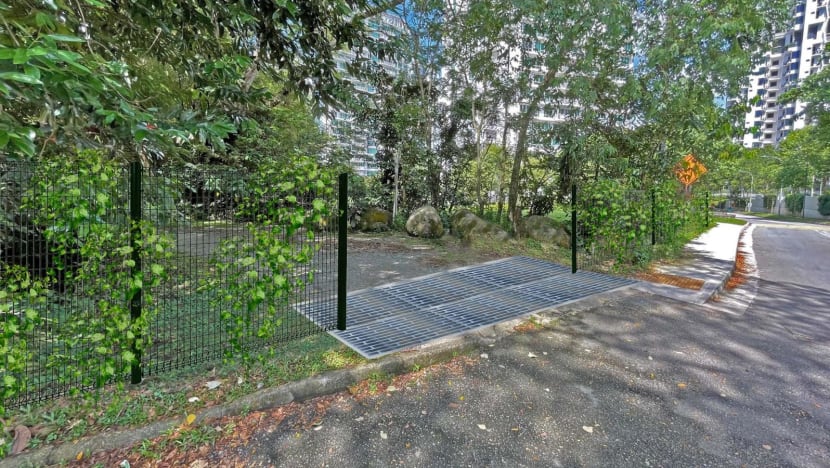
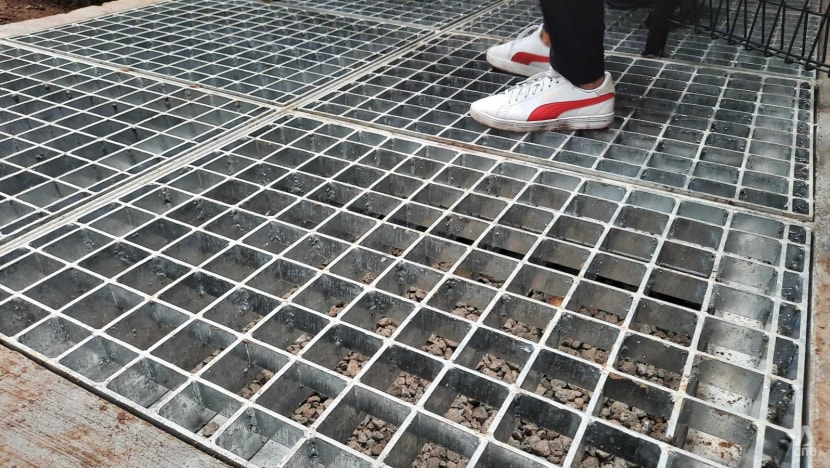
SCALING UP OF MEASURES
Boars are native to Singapore and can weigh up to 100kg, with a lifespan of over 20 years, according to NParks' website. While omnivorous, they feed mainly on seeds, tubers and young plants.
The mammals can reproduce up to twice a year, with a litter size of four to 12 piglets. With feeding by humans, boars can produce an even larger litter of eight to 16 piglets due to nutrients in the food, NParks told the media in a briefing.
Boars reside in forested areas but may venture into surrounding residential areas in search of food. They may get aggressive due to urban stimulation like bright lights and loud sounds.
In May, a woman was hospitalised with multiple wounds after she was attacked by a wild boar at a bus stop along Bukit Panjang Road. The animal was euthanised after it was found to have two broken hind legs.
Another attack occurred on Jun 1, involving a 40-year-old man who was walking his dog at Zhenghua Nature Park. The boar bit the man's leg and left him with a wound that required more than 20 stitches.
Including these two attacks, NParks has handled three wild boar incidents as of June this year.
The agency said that these exclusion measures were to complement existing ones such as culling and limiting human sources of food.
Zhenghua Nature Park is often used by the boars as a transit corridor due to its proximity to Chestnut Nature Park, Central Catchment Nature Reserve and Dairy Farm Nature Park.
NParks identified three key points of connection between forested areas and Zhenghua Nature Park: Gali Batu Flyover, Bangkit underpass and along Chestnut Avenue.
"These are areas where the access points are funnelled to the shortest width, so it makes most economic sense to install barriers at these strategic locations," group director of Wildlife Management at NParks Ryan Lee said.
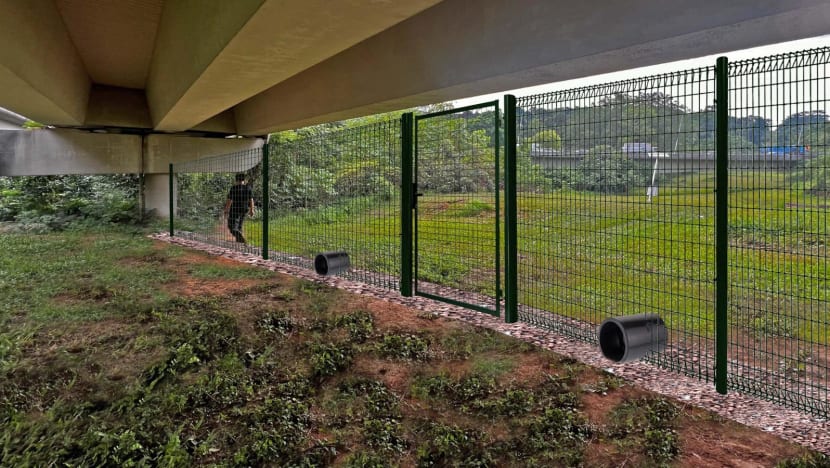
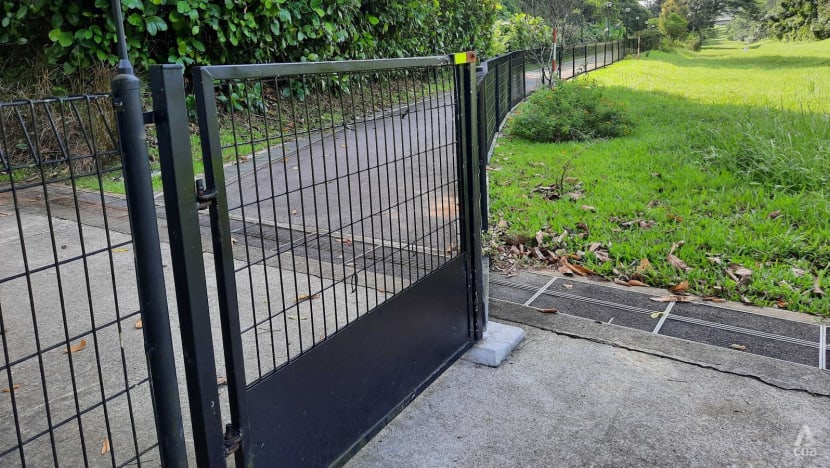
The fences under Gali Batu Flyover will be 1.8m in height with PVC pipes at the base to allow smaller animals to pass through, while the fences at Chestnut Avenue and Bangkit underpass will be about 1m tall.
"The fencing is designed with a combination of either gaps at the bottom for the small animals to cross, or with cattle grids, that will prevent animals such as wild boars from crossing, but enabling other animals to still traverse between these forested areas," said Mr Lee.
It will be the first time cattle grids are used in residential areas on the mainland after being installed in Pulau Ubin in 2021.
Senior Minister of State for National Development and Communications & Information Tan Kiat How was at Zhenghua Nature Park on Friday to view the new measures.
“Public safety is our top priority. I know residents are concerned about the recent wild boar incidents here at Zhenghua. We are taking a proactive science-based approach to manage this,” he said.
“We are also working closely with our grassroot advisors and grassroot leaders to raise awareness amongst our residents to know what to do when they encounter or if they encounter a wild boar.”
Also in attendance were Members of Parliament (MP) Edward Chia (Holland-Bukit Timah) and Liang Eng Hwa (Bukit Panjang).
Mr Liang told CNA after the second attack in Bukit Panjang that the authorities will step up surveillance and take stronger enforcement actions to stop people from feeding the boars.
When asked about the status of the two attacked residents, Mr Liang said their conditions have stabilised, although the woman from the earlier case needed more time to rehabilitate.
"I'm happy that NParks has agreed with us that the residents' safety is our foremost priority. And we are committed to working together to significantly reduce the risk of animals entering into our area ... and also to minimise any risk of injury to our residents," he added.
"So there are various measures put up and we are monitoring closely the effects of all these measures and hopefully we can then provide a safe environment for our residents."















